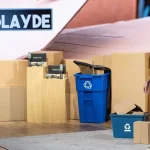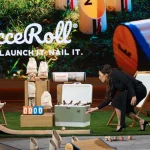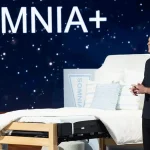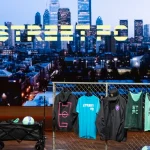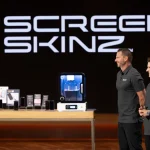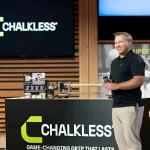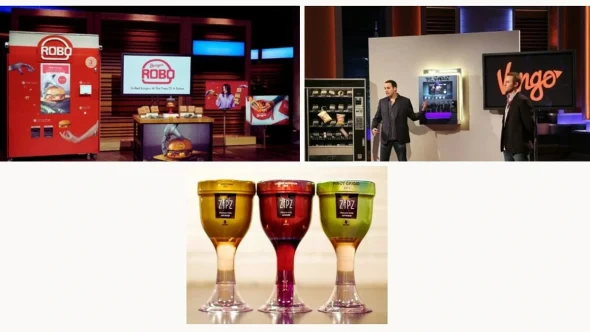
Highlights
- Shark Tank has presented its viewers with countless expensive deals in the past fifteen years.
- Zipz is often remarked as the most pricey deal on Shark Tank.
- Vengo and Robourgers are other businesses that have grabbed million-dollar deals from investors.
- These high-stakes investments reveal the risks Sharks are willing to take for groundbreaking ideas.
Shark Tank is known for its risky multi-million dollar deals, high-stakes negotiations, and entrepreneurial aspirations.
In its many seasons, it has featured a range of groundbreaking investments and dramatic negotiations. It has enticed viewers with these monumental Shark Tank deals that capture the excitement and unpredictability of the business world.
While the list of deals is endless, there are some that find a place in the memory of viewers due to their unique nature. One such unique group of deals is the ‘most expensive’ ones.
The Biggest Shark Tank Investments Ever Made
Over the years, Shark Tank has featured some jaw-dropping multi-million dollar investments. These record-breaking deals stand out not only for their size but also for the bold ideas behind them.
Below are the most expensive Shark Tank deals and the companies that managed to secure them.
1. Zipz
With a huge investment of $2.5 million for 10% equity, the Zipz deal is one of the biggest Shark Tank deals in its entire history.
After being compared with Copa Di Vino, here is how the entrepreneur managed to convince the judges and grab an impressive offer on the show.
Entrepreneur Andrew McMurray approached the tank, pitching his company, Zipz. He sought $2.5 million at 10% equity.
Presenting it as a potent solution to drinking wine on the go, Andrew stressed the aspects of ‘packaging’ and ‘licensing.’ He then explained how his brand stood out amongst competitors.
Knowing Kevin O’Leary’s inclination towards wine-based businesses, he smartly started his pitch, trying to capture his attention.
He further highlighted the product’s key differentiators, including its durability, recyclable outer wrap (a UV protectant), and longer shelf life. Each glass costs $2.99.
Who Made The Deal?
Though impressed, the Sharks wanted to know how Zipz differed from Copa Di Vino. Andrew replied that it’s due to its one-year shelf life.
Still, no one except Kevin seemed interested. He sealed the deal at $2.5 million for 10% equity, contingent upon getting into COSTCO.
Despite closing the record-breaking deal, Zipz exited the wine business in 2016, shifting focus entirely to licensing its packaging technology.
2. Vengo
Seeking a massive $2 million investment at a 12.5% equity stake, Vengo founders created quite the buzz on Shark Tank.
The deal was finalized at a staggering $2 million for a 7% loan and a 3% equity stake. From how the negotiations unfolded to who made the huge investment, here is a complete recap.
Entrepreneurs Brian Shimmerlik and Steven Bofill made their way to the judges with their line of tech-smart vending machines.
Seeking $2 million at 12.5% equity, they started the pitch by visualizing traditional vending machines compared to modernized ones.
The Sharks were impressed with its features and functioning. When asked about the numbers, the entrepreneurs revealed that the selling cost was $2500.
Further, they were eyeing $1 million in sales by 2015. To get their items in the machine, the product providers were charged $200 per SKU every month.
Who Made The Deal?
While the other Sharks backed out, citing the high valuation and complicated business model, Kevin O’Leary and Lori Greiner made a joint offer.
The two of them finalized one of the most expensive Shark Tank deals with Brian and Steven for $2 million at 7% loan and 3% equity. The loan was to be repaid within 36 months.
As of 2024, Vengo generates an impressive $15 million in annual revenue, proving the risky deal paid off.
3. Roboburger
With a final offer locked at $2 million for 20% equity, Roboburger promptly finds its spot on the list of most expensive Shark Tank deals.
Having aired in the fifteenth season, it emerged as one of the most talked-about deals. After intense questioning regarding the business figures, here is how it secured an offer:
The trio of Andy Siegel, Dan Braido, and Audley Wilson approached the Sharks with their hamburger vending machines, which were set up on the foundation of robotics.
Seeking $1.5 million for 5% equity, they gave a visual demo of how the burgers were to be prepared using their machines.
The trio then called guest Shark Michael Rubin to try making the hamburger using their machine. Alan claimed Roboburger owned 4 patents, and the charges for the lease program were $3K for each month.
The amount made through revenue in 2023 was $1.4 million.
Who Made The Deal?
The only Sharks interested in making a deal were Michael and Kevin O’Leary. The other judges stayed away due to the competitive business type.
Michael offered a $1.5 million loan for 10% equity. Kevin, too, asked him to partner with him and offer the deal together. Both of them locked the deal at $1.5 million for 9% equity.
Post-show, the company is going strong and has introduced new varieties, such as breakfast sandwiches and plant-based burgers.
Comparison of the Most Expensive Shark Tank Deals
Here is a quick comparison of the biggest Shark Tank deals, Sharks involved, and how the companies have performed since appearing on the show.
| Company | Deal Amount | Outcome |
|---|---|---|
| Zipz | $2.5 million for 10% | Deal closed with Kevin O’Leary, but the company exited the wine business in 2016. |
| Vengo | $2 million (7% loan + 3% equity) | Deal with Kevin O’Leary & Lori Greiner. The company is still active, with $15M revenue as of 2024. |
| Roboburger | $1.5 million for 9% | Deal closed with Kevin O’Leary & Michael Rubin. The company is expanding its product lineup. |
Most Expensive Deals That Made Shark Tank History
Shark Tank has often garnered the attention of its audiences through its thrilling moments, including expensive deals. Some of these breakthrough Shark Tank deals are Zipz, Vengo, and Roboburgers.
Each of these investments has presented the commendable potential of ingenious business ideas.
As the new season is about to start, viewers can brace themselves for the same unpredictable and exciting deals.
References
- Vending machine founders get $1.5 million ‘Shark Tank’ offer—despite a business model Mark Cuban called ‘a huge mistake’, CNBC, Tom Huddleston Jr.
- Zipz Wine: Here’s What Happened After Shark Tank, Food Republic, Louise Rhind-Tutt









